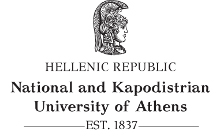
Dr. Ioannis Tsekouras earned his Ph.D from the University of Illinois at Urbana-Champaign, School of Music. His dissertation examines the music of the Pontic Greeks or Pontians—descendants of the 1922 Greek refugees from the Black Sea region of Turkey. More specifically, his dissertation explores the negotiation of Pontic identity discourse and collective memory through the dialogical singing performances of parakathi. His dissertation stems out of extensive fieldwork in Greece (Macedonia region), funded by the University of Bologna (Tulia Magrini Prize), the Euxeinos Leshe of Thessaloniki (research grant), the Argonaute Komnini Pontic cultural association (Deligiorgi Prize), and the University of Athens, Greece (research grant). Short texts of Ioannis Tsekouras can be found in World Music - New Series (2017), and the Review of Middle Eastern Studies (2018). Tsekouras has presented parts of his research at conferences of the Society for Ethnomusicology (continuously from 2014 to 2017), at the annual meetings of the American Anthropological Association (2016 and 2017), as well as at a multitude of specialized conferences and invited talks.
Tsekouras’ research and teaching interests include issues of ethnicity, nationalism, and collective memory, musical affect and emotionality, the cultural objectification of the singing voice, issues of timbre, the relation between sound and natural environment, musical negotiations of community, music and politics, and in general the musical realities of the Balkan, Southeastern Europe, Turkey, and the Middle East.
His principle music instruments are the kaval as it practiced in the Thrace region of Greece and in Bulgaria and the Pontic/Turkish Black Sea ğaval. Tsekouras participates regularly in the Balkanalia Music Ensemble of the UIUC as a kaval player, percussionist, and singer.
